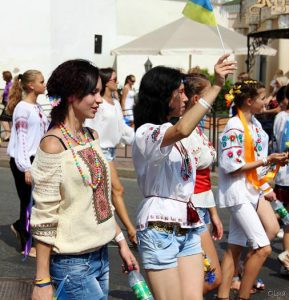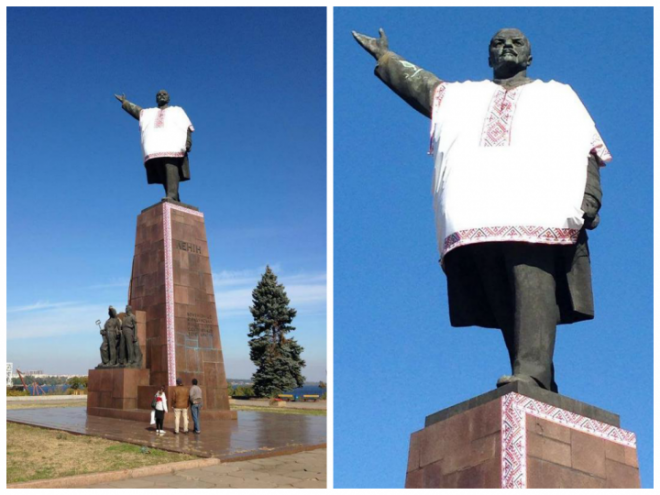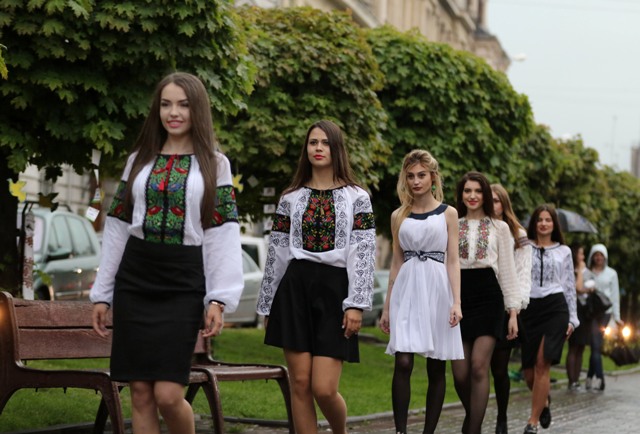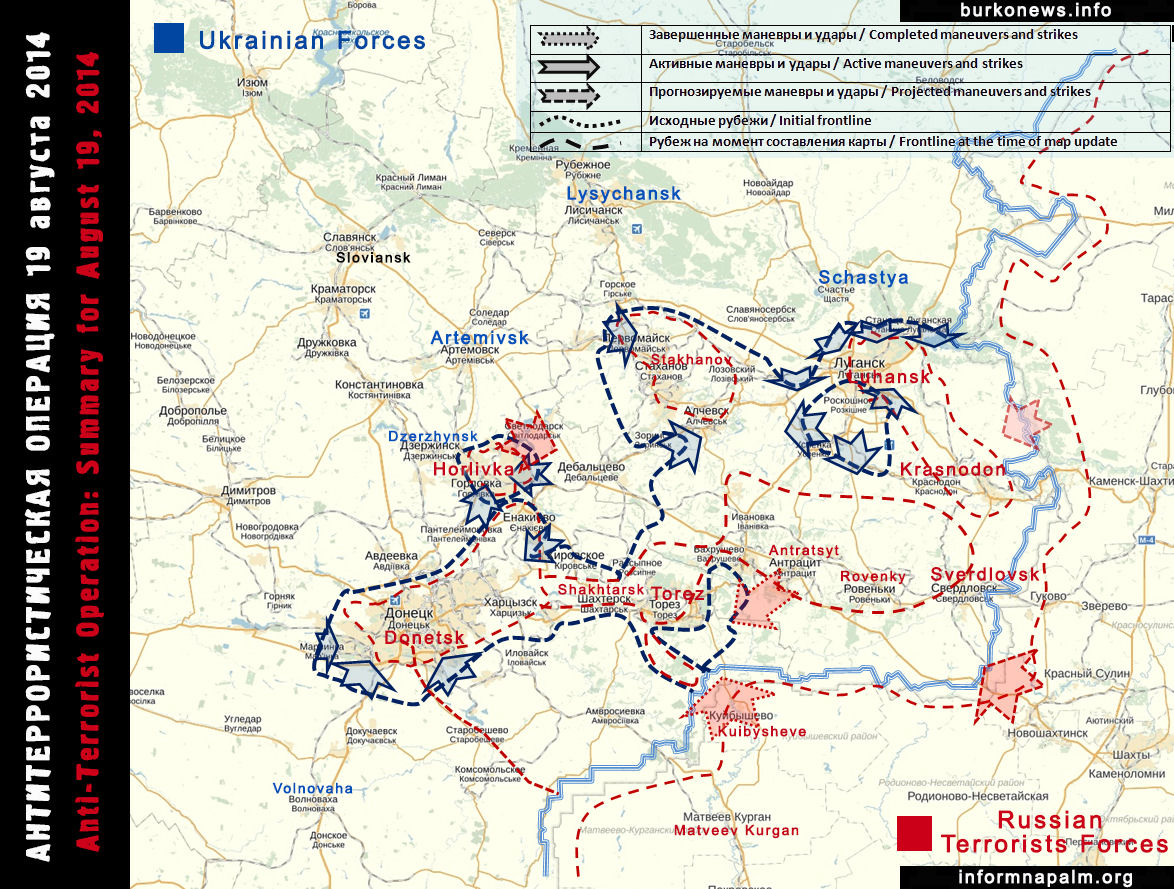- “Why in a country where there hasn’t appeared a single children’s film and only a couple of adult ones over the last 24 years are Russian-language young people drawn not to Russia but have been enthusiastic about the ethno-culture of Halychyna?” [Note: By using the term "Halychyna," which was a medieval princedom with territory straddling western Ukraine, eastern Poland and Slovakia, Nevzorov shows his geographic incompetence and his desire to diminish the ethnic Ukrainian culture in the rest of Ukraine, which had survived despite centuries of forced Russification by Russian tzars and communists. - Ed.]
- “How has the rejection of the Soviet project influenced the assimilation of ethnic Russians in a fraternal Slavic culture on a fragment of Soviet Russia?”
- “How has consumerism led to the formation of a Ukrainian political nation” and “why have glamorous Russian-language girls and guys begun to wear in night clubs vyshyvankas [traditional Ukrainian clothes] rather than Versace and Gucci?”
- “What is Halychyna” not only generally but for Russians in Ukraine? Why have the village and the village worldview won over Russian-language cities like Kharkiv, Odesa, Dniprpetrovsk and even Zaporizhzhia?”
- “Is the absorption and assimilation of Russians in more radically different non-Slavic cultures possible?”
- Why does Ukrainian education have such an influence on Russians?
- What is the proper role of the Black Sea Fleet in maintaining Russian identity in Crimea?
- How did Russia’s problems in the 1990s affect how Russians in Ukraine saw Russia and their own futures?
- Can this process of assimilation be stopped and reversed or have things gone beyond the point of no return?

- First, it is not just Russian-speaking Ukrainians who have joined Ukrainian-speaking Ukrainians to form a civic nation in Ukraine over the last two decades; it included Russian-speaking Russians who have done so as well.
- Second, this pattern reverses what was typical in Soviet times and one that Russians and many others have assumed is the only one available – that Russians assimilate other peoples, not the other way around. But today, Russians are being assimilated not just politically but ethnically in many places and in the first instance Ukraine.
- And third, that highlights something that even fewer people have been willing to consider up to now: Russian national identity, despite Moscow’s bombast and the assumption that assimilation only goes in the Russian direction is fact often far weaker than the national identities of other peoples on the post-Soviet space -- even when these nations continue to use Russian.





